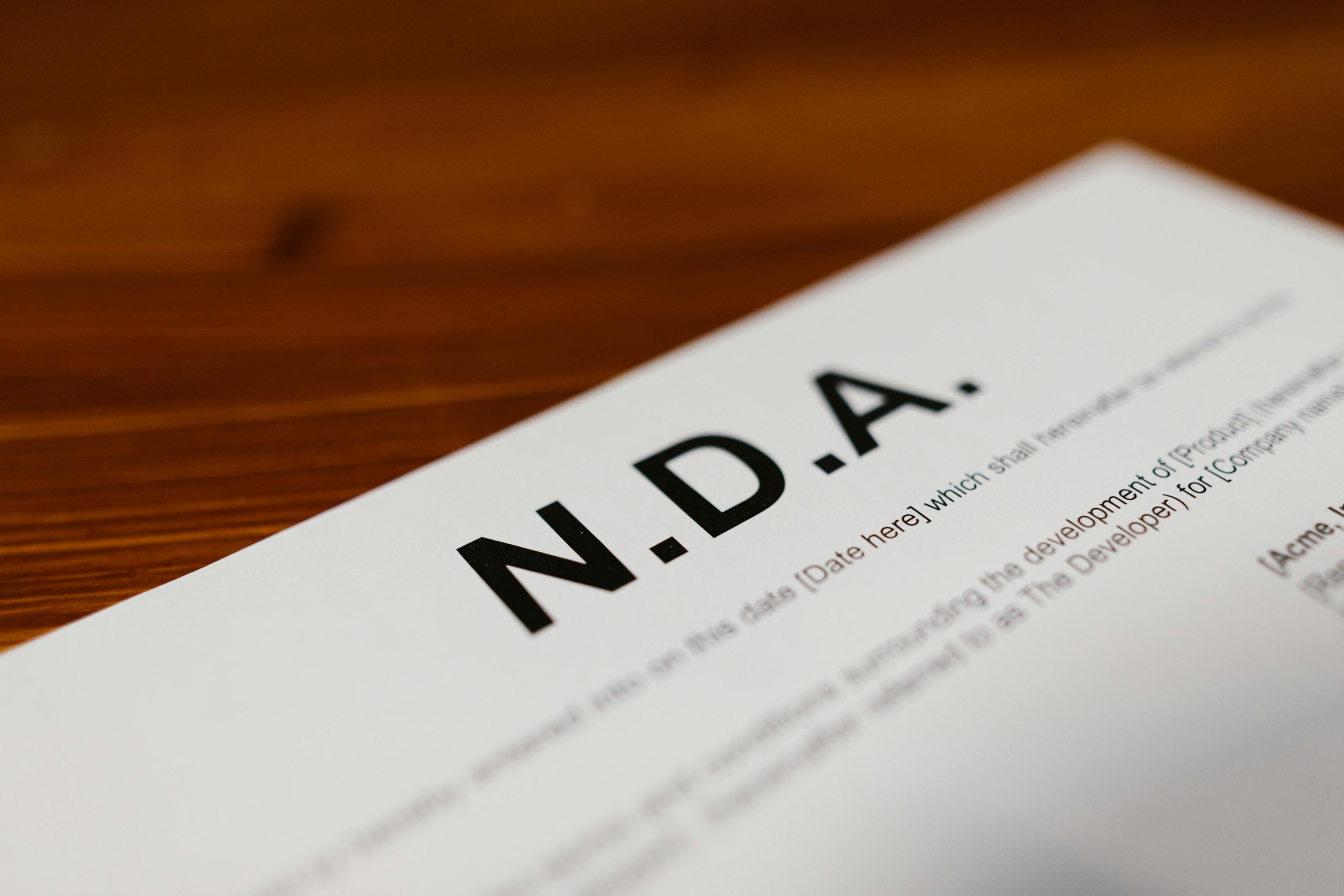
An NDA is a non-disclosure agreement, a legal contract that safeguards sensitive information. While businesses use NDAs to protect trade secrets and customer lists, family offices have an equally important need to maintain confidentiality. A family office handles some of the most private details about a family’s life, including assets, relationships, and legal matters. For this reason, an NDA is a powerful tool for family offices to protect a family’s privacy and financial security.
Why Family Offices Need NDAs
For high-net-worth and ultra-high-net-worth families, an NDA is an essential tool for maintaining control and peace of mind. Here’s a breakdown of the key reasons why.
Privacy and Asset Protection
A family office employee often knows the most intimate details about a family’s life, from their extensive asset portfolio to personal disputes. An NDA ensures that individuals with access to this confidential information are legally bound to maintain discretion. This includes household staff, financial advisors, estate planners, and everyone else who might handle sensitive information. By protecting the privacy of a family’s financial strategies and personal relationships, an NDA helps prevent security breaches and unwanted scrutiny.
Estate Planning and Philanthropy
High-net-worth individuals establish family offices to manage their wealth and estate planning. NDAs are essential in this setting, as they ensure that employees, including lawyers, accountants, and wealth managers, maintain discretion when handling complex financial matters like trusts and inheritance plans.
NDAs can also be used to protect the privacy of philanthropic efforts. When discussing donations, partnerships, or funding arrangements with charitable organizations, an NDA helps protect the privacy of the family’s intentions and financial contributions.
Personal Relationships
An NDA can even be applied to a family’s personal relationships. Prenuptial agreements or divorce proceedings often include NDAs to help protect individual assets and financial privacy. These agreements provide a clear framework for asset division and offer a sense of security during a difficult time.
When to Use an NDA
The two most critical times to use an NDA are at the beginning and end of an employee’s time with the family office.
The Hiring Process
When a new employee joins the team, it’s a great opportunity to set the tone and expectations for confidentiality. You can have the employee sign a broad NDA on or before their first day of employment, emphasizing that it’s one of the most important documents they’ll sign. This makes it clear that one of the employee’s most important responsibilities is preserving the secrecy of all the family’s private information.
The best NDA is the one you never have to use, so you can also limit the information an employee has access to on a need-to-know basis.
The Termination Process
The end of employment can be emotionally charged, especially when an employee is being let go. Laying the groundwork for confidentiality at the start of employment can prevent a departing employee from taking a “scorched earth” approach to the family’s private information.
During the termination process, it’s important to reiterate the need for confidentiality. This can be as simple as reminding an employee of their NDA obligations in an exit interview or including a copy of the agreement with their termination paperwork.
If you offer a departing employee severance, you can require them to maintain the family’s confidentiality as a condition of that severance. This gives them a financial incentive to comply and serves as another reminder that confidentiality is serious business.
Enforcement Varies by State
While NDAs are valuable nationwide, their enforceability can vary significantly by state. Different states have different rules, particularly regarding how an NDA might function as a restrictive covenant.
For instance, Wisconsin law treats employment-related NDAs similarly to non-compete agreements. This means an NDA must be “reasonable in all terms” or it risks being ruled invalid. A court might consider factors like the length of time the NDA is in effect, its geographic scope, and whether the restrictions are a reasonable protection of the employer’s interests without being overly burdensome to the employee or the public.
Other states, like California, have specific laws, such as the “Silenced No More Act,” that explicitly prohibit NDAs from being used to prevent employees from disclosing factual information about workplace harassment, discrimination, or retaliation. This demonstrates why a “one-size-fits-all” approach to NDAs is not effective and emphasizes the need for agreements to be carefully drafted to comply with the specific laws of the state where they will be enforced.
In Conclusion
Still have questions on the value of NDA’s for family offices? GTM provides comprehensive support, from drafting state-compliant confidentiality agreements to ensuring that all necessary documents are handled properly during onboarding and offboarding. By partnering with a dedicated HR expert, family offices can navigate the complexities of employment law, reduce administrative burdens, and have peace of mind knowing that their most sensitive information is protected by a well-executed HR strategy. Give us a call at (800) 929-9213 or book a complimentary, no-obligation consultation.
Download The Complete Guide to Household Payroll
Get our complimentary guide and learn everything you need to know about paying your employees legally and filing your taxes the right way.






 Get your free:
Get your free: